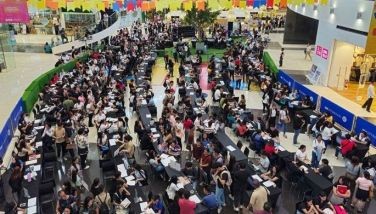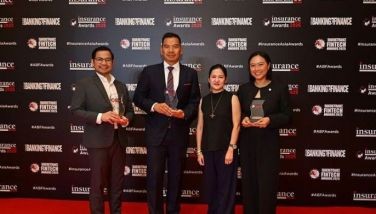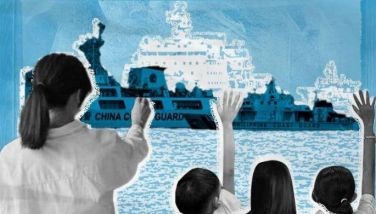Go leads team that will negotiate tariff with US
MANILA, Philippines — President Marcos’ aide for economic matters will negotiate with the US trade representative on the 17 percent tariff imposed by the Trump administration on Philippine exports even if Manila sees the reciprocal duty having only a slight impact on the economy.
Special Assistant to the President for Investment and Economic Affairs Frederick Go said the Philippine government has reached out to the US Trade Representative (USTR) and has communicated its intention to engage in a meeting or a dialogue on the tariff policy.
“They have positively responded so I will be scheduling a trip to the United States to meet with the USTR soon,” Go said in a press briefing yesterday.
“I think the keywords are probably not (to) appeal. This is a negotiation and of course in my opinion, the best possible outcome is a free trade agreement. Free trade agreement means zero tariffs on their side, zero tariffs on our side – that’s probably the best possible outcome of that meeting. But again it’s open communication, dialogue, cooperation, and let’s see what we can negotiate,” he added.
Fears of a global recession and rising prices mounted after US President Donald Trump decided to slap reciprocal tariffs on more than 100 countries including the Philippines “to promote American industries.”
Claiming that the US has been “looted, pillaged, raped and plundered” by other countries, Trump said the so-called “Liberation Day” tariffs would “make America wealthy again.”
Under the new tariff regime, the Philippines’ exports were slapped with a 17-percent tariff, lower than those of most Southeast Asian countries, but higher than the 10 percent baseline figure. The US imposed a 49 percent rate for Cambodia, 46 percent for Vietnam, 36 percent for Thailand, 32 percent for Indonesia, 24 percent for Malaysia and 10 percent for Singapore. Exports from China and the EU were slapped with a 34 percent and 20 percent tariff rate, respectively.
According to previous reports, Marcos, Indonesian President Prabowo Subianto, Malaysian Prime Minister Anwar Ibrahim, Brunei Sultan Hassanal Bolkiah, Singaporean Prime Minister Lawrence Wong and President Marcos met via teleconference last weekend to tackle a joint response to the tariff policy.
Marcos’ economic team met last Tuesday to discuss how the Philippines will respond to the measure. Ministers of the Association of Southeast Asian Nations (ASEAN) were also scheduled to discuss the issue yesterday.
“I would like to summarize perhaps four points that were raised: The first one is that the ASEAN trade Ministers have gotten together and have decided to communicate with the US I think three main points – first, is to reaffirm the long, enduring and strong relationship with the US; second though, is to express their concern over these unilateral tariffs that are being imposed on the ASEAN,” Go said.
“Third is to engage in a frank and constructive dialogue with the US to reaffirm their readiness or our readiness in ASEAN to work together, to explore mutually acceptable solutions on issues of common interest.”
Slight advantage
Go said the impact of the tariff measure on Asian exports as well as the Philippine industries and sectors to be affected by the duties were tackled during the meeting of economic managers last Tuesday.
“We concluded the meeting by discussing possible ways forward, possible next steps, possible actions that your government can take regarding these reciprocal tariffs,” he said.
Go said the Philippines has a slight advantage in the situation, noting that the 17 percent duty is the second to the lowest, but acknowledged that it could still affect some industries.
“Based on the NEDA (National Economic and Development Authority) estimates, it has a possible effect on 0.1 percent of our GDP (gross domestic product) in the next two years. So, the effect is just slight,” he said in Filipino.
“Of course, we have to also think that this is only one export sector of the country and businesses are generally quite resilient – if one market closes, they would just look for other markets to be opened.”
- Latest
- Trending




























